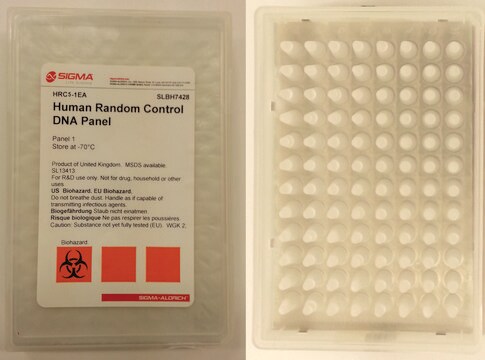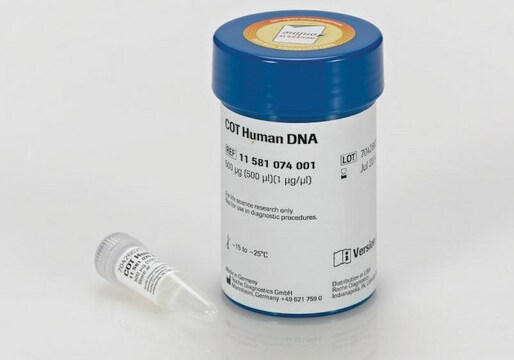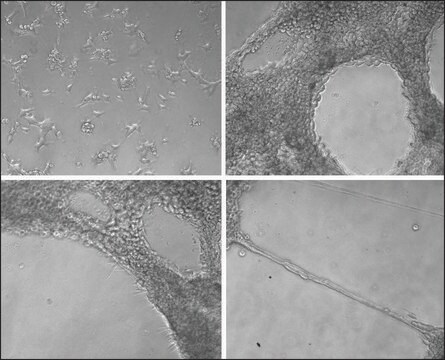HRC1
Human Random Control DNA Panel
Panel 1
About This Item
Polecane produkty
Poziom jakości
Formularz
liquid
stężenie
100 ng/μL
kolor
colorless
Warunki transportu
dry ice
temp. przechowywania
−70°C
Szukasz podobnych produktów? Odwiedź Przewodnik dotyczący porównywania produktów
Zastosowanie
The range of Human Random Control (HRC) DNA samples represents a control population of 480 UK Caucasian blood donors. The HRC DNA is extracted from lymphoblastoid cell lines derived by Epstein Barr Virus (EBV) that can be continuously propagated in culture. This ensures an infinite supply of the unvarying DNA panels. The composition of each panel is completely defined and standardized so that each lot will be identical. Therefore, the HRC DNA Panels can be used as Reference Standards as routine quality control in the laboratory.
The purified HRC DNA is available in 5 different panels (HRC 1 through 5) consisting of 96 individuals with 2 μg each at a concentration of 100 ng/μL. The DNA is dissolved in 10 mM Tris (pH 8) 1 mM EDTA.
For ordering purposes, the 96-well plate format is listed as a 1 EACH (1EA) package size.
Hasło ostrzegawcze
Warning
Zwroty wskazujące rodzaj zagrożenia
Zwroty wskazujące środki ostrożności
Klasyfikacja zagrożeń
Eye Irrit. 2
Kod klasy składowania
11 - Combustible Solids
Klasa zagrożenia wodnego (WGK)
WGK 2
Wybierz jedną z najnowszych wersji:
Certyfikaty analizy (CoA)
It looks like we've run into a problem, but you can still download Certificates of Analysis from our Dokumenty section.
Proszę o kontakt, jeśli potrzebna jest pomoc Obsługa Klienta
Masz już ten produkt?
Dokumenty związane z niedawno zakupionymi produktami zostały zamieszczone w Bibliotece dokumentów.
Klienci oglądali również te produkty
Produkty
DNA, RNA, cDNA derived from ECACC mammalian cell lines allow screening for genes or expression patterns to identify lines most suitable for specific research.
Nasz zespół naukowców ma doświadczenie we wszystkich obszarach badań, w tym w naukach przyrodniczych, materiałoznawstwie, syntezie chemicznej, chromatografii, analityce i wielu innych dziedzinach.
Skontaktuj się z zespołem ds. pomocy technicznej









